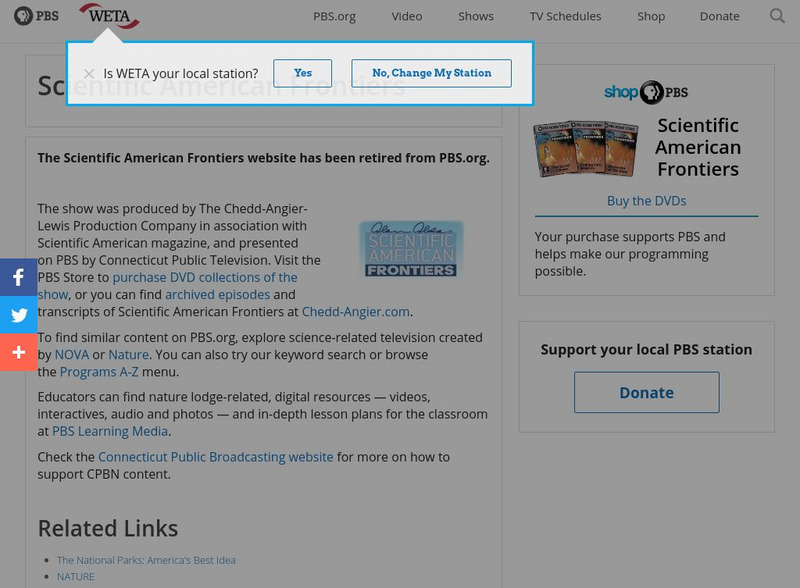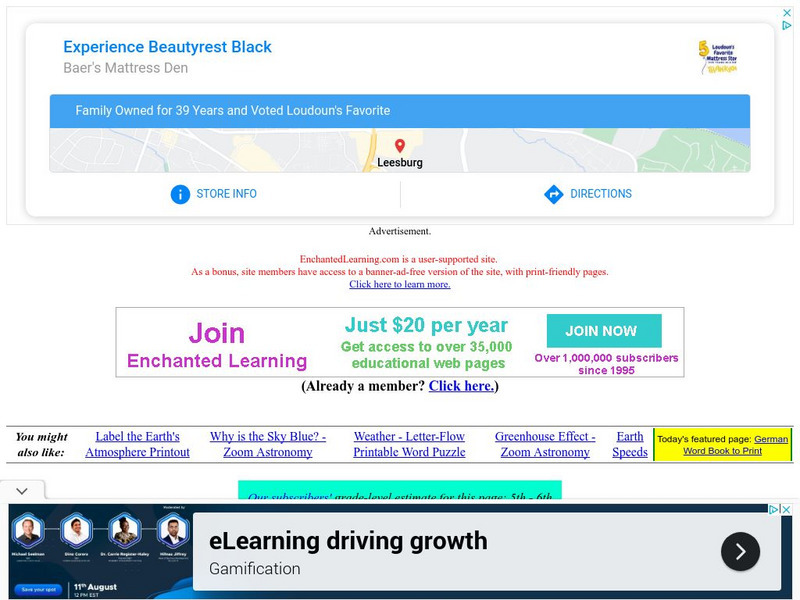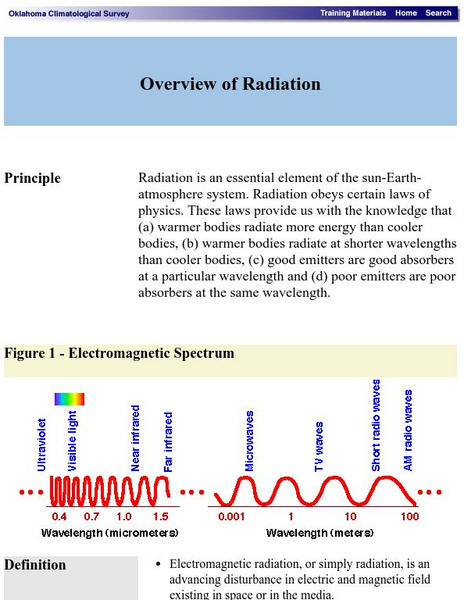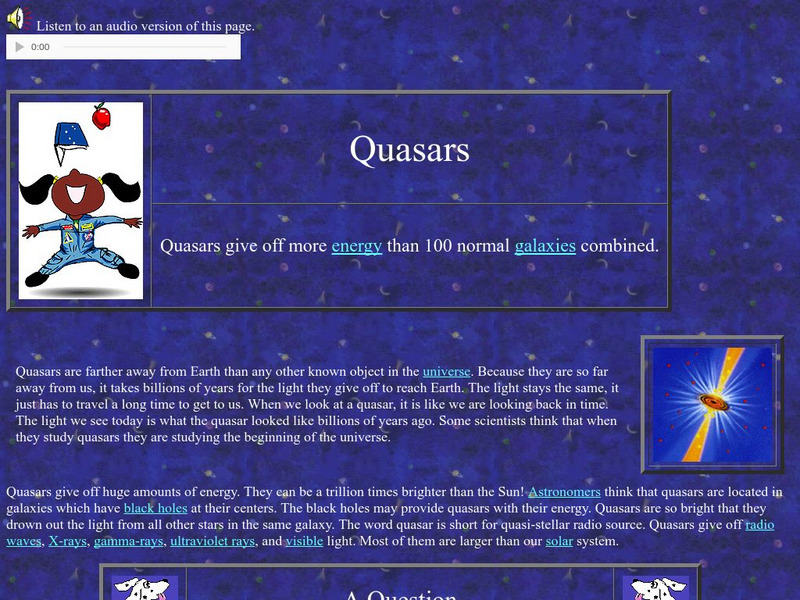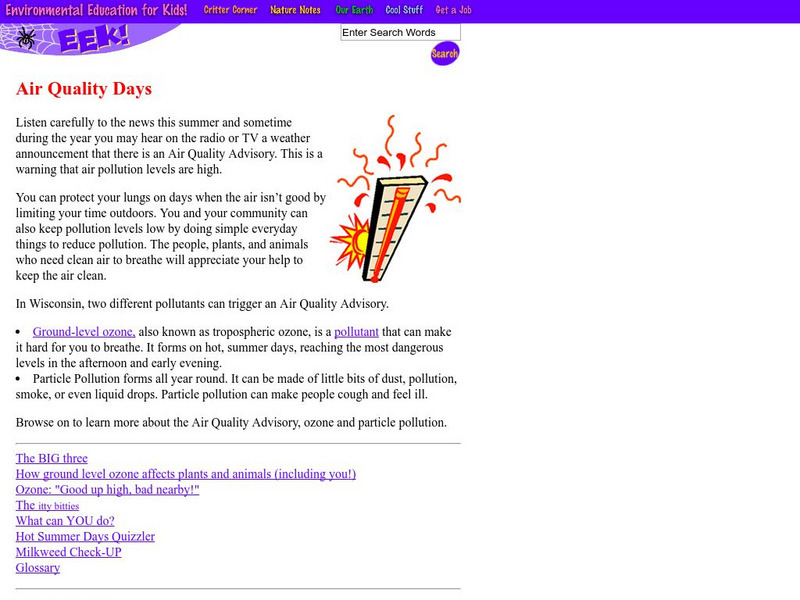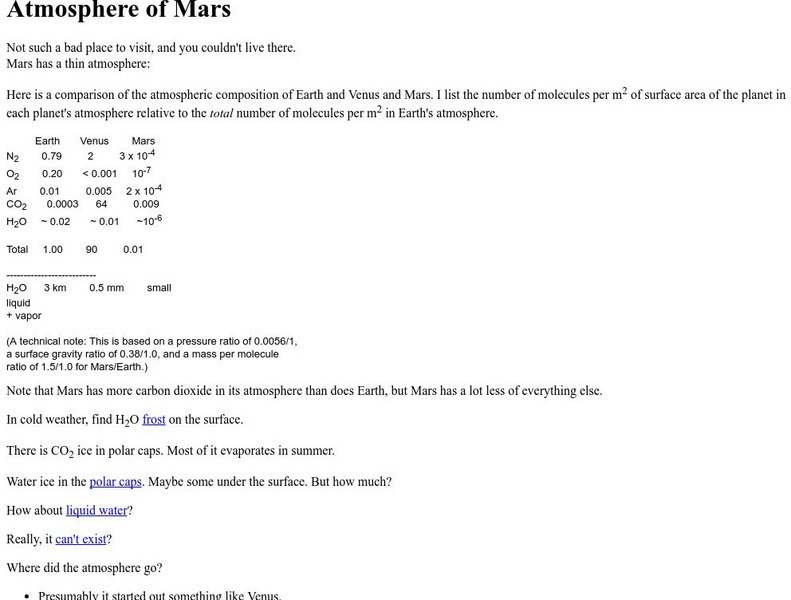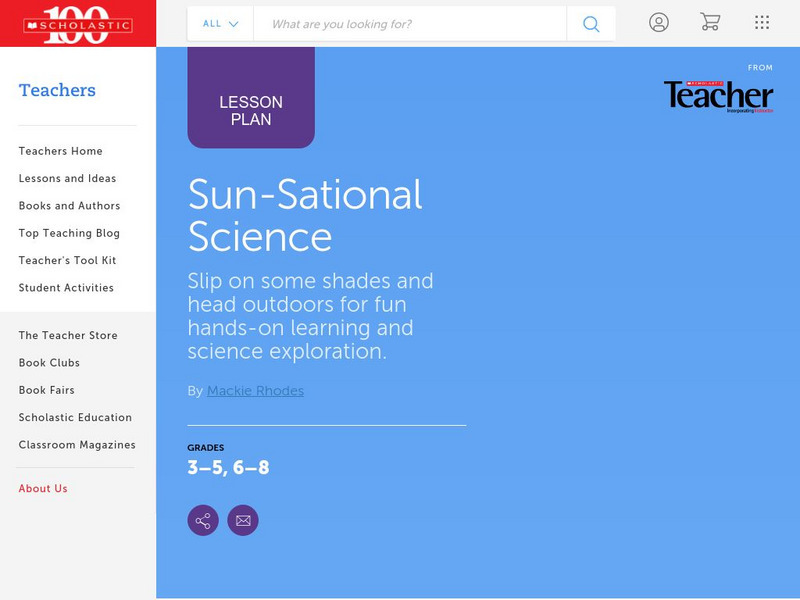Curated OER
Kids Health: How to Be Safe When You're in the Sun
Learn about the sun's harmful effects on human skin and find simple tips that help prevent getting sunburn, which can lead to skin cancer.
Environmental Education for Kids
Eek!: Hole in the Ozone Layer
Site creatively explains the causes and effects of ozone depletion. Then asks the question. Is there a hole? Grades 3-6.
US Environmental Protection Agency
Epa: Learn the Issues: Health & Safety
This site provides real-world issues as well as the scientific research and technology used to support the EPA's mission to protect human health and safeguard the natural environment.
Other
The Weather Company: The Weather Underground
Source of weather maps, forecasts, images, and data for the world. Maps include temperature, radar, visibility, wind, heat index, wind chill, humidity, and dew point.
Government of Alberta
Alberta Environment: Focus on the Ozone Layer [Pdf]
This article explains what the ozone layer is, why it is important, and how we can help to slow down its depletion from the atmosphere.
NASA
Viewing the Violent Universe: What Are Gamma Rays?
The universe produces a broad range of light, only a fraction of which is visible to our eyes. Gamma rays are nonvisible light, which also includes x-rays, ultraviolet light, infrared radiation, and radio waves.
PBS
Pbs Teachers: Scientific American: Spider Web Making Stratagems
Investigate spiders in Panama that use UV-reflecting silk in their webs to attract their prey. Build a device that traps flying insects, experimenting with different light sources to choose the best lure.
PBS
Pbs Teachers: Scientific American: The Wild West: Nasty Critters
Research the taxonomy, physiology and relatives of scorpions and create a mobile. Explore the stereoscopic senses of pit vipers, and experience how perception can be augmented by causing fluorescent paint to glow with UV light.
Enchanted Learning
Enchanted Learning: The Earth's Atmosphere
The Earth's atmosphere is a thin layer of gases that surrounds the Earth. It composed of 78% nitrogen, 21% oxygen, 0.9% argon, 0.03% carbon dioxide, and trace amounts of other gases. This thin gaseous layer insulates the Earth from...
Johns Hopkins University
The Electromagnetic Spectrum
NASA related site shows the entire Electromagnetic Spectrum. Provides a brief description of the expansive colored spectrum as well as a related link that provides more details.
Oklahoma Mesonet
Oklahoma Climatological Survey: Overview of Radiation
This site details what radiation is, the physics of radiation, and radiative transfer as it occurs in nature. Content explores the electromagnetic spectrum, electromagnetic waves, properties of radiation, and solar radiation.
University of California
U.c. Berkeley: Spectra From Space
View the entire spectrum of electromagnetic radiation and get information on telescopes especially designed to view different wavelengths of the spectrum.
NASA
Nasa Star Child: Quasars (Level 1)
Learn why quasars are the brightest things in the universe. Vocabulary words linked to a glossary of terms and a printable version are available.
NASA
Nasa Star Child: Comets (Level 1)
Younger students learn why comets race through the sky as well as related vocabulary words and meanings.
NASA
Nasa: The Space Place: The Land of the Magic Windows
This is a site from NASA that contains an interesting and fun way to learn about the electromagnetic spectrum. Kate receives a strange riddle from her grandfather. Find out what it says and go through the gateway to the Land of the Magic...
Environmental Education for Kids
Eek!: Hot Summer Days Ozone Action
Easy to read and understand site from Environmental Education for Kids. Good and bad ozone explained and illustrated. Complete with glossary and Quizzler at the end.
Space Telescope Science Institute
Amazing Space: Mission Mastermind
This site is provided for by Amazing Science. "NASA needs your help in planning a Hubble Servicing Mission. Join the team!"
University of Oregon
University of Oregon: Mars' Atmosphere
Here is a comparison of the atmospheric composition of Earth, Venus and Mars.
PBS
Newton's Apple: Cancer Causes
In this lesson plan site from Newton's Apple, a production of KTCA Twin Cities Public Television in cooperation with the National Science Teachers Association, the causes of cancer are discussed. Several cancer causing agents are also...
Scholastic
Scholastic Instructor: Sun Sational Science
Discover more about the sun when you visit this educational resource. The content of this site includes solar fun facts, experiments, and activities.
Other
North Carolina Deq: The Adventures of Clair & Cam [Pdf]
The North Carolina Department of Environmental Quality offers the PDF "The Adventures of Clair & Cam" a K-5 Curriculum & Activity Guide which provides air quality education videos, lessons, activities, and music. Requires Adobe...
Environmental Education for Kids
Eek!: Outdoor Safety: Jeepers, Creepers, How Do You Protect Your Peepers?
Learn how to protect your eyes from harmful sun rays.
NASA
Nasa: Imagine the Universe: Welcome to the World of Multiwavelength Astronomy!
This Imagine the Universe site provides an introduction into the multiwavelength universe and astronomy. Site provides graphics, links to a quiz, facts on this topic as well as teacher resources.
Curated OER
Ar Kive: Emperor Scorpion (Pandinus Imperator)
The largest of scorpions, but not the longest, the emperor scorpion (Pandinus imperator) has a dark body ranging from dark blue/green through brown to black. The large pincers are blackish-red and have a granular texture. The front part...
Other popular searches
- Uv Beads
- Uv Radiation Damage
- Uv Exposure
- Sun Uv Rays
- Uv Radiation Cancer
- Uv Detection Beads
- Science Uv Rays
- Uv Rays and Dna
- Radiation Sun Uv Rays
- Conjugation Uv
- Sun Safety Uv Beads
- Beers Law Uv
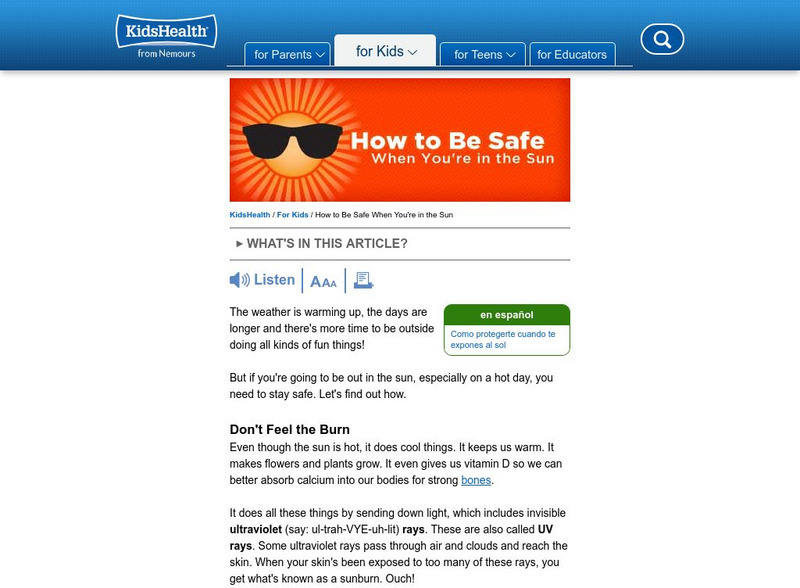


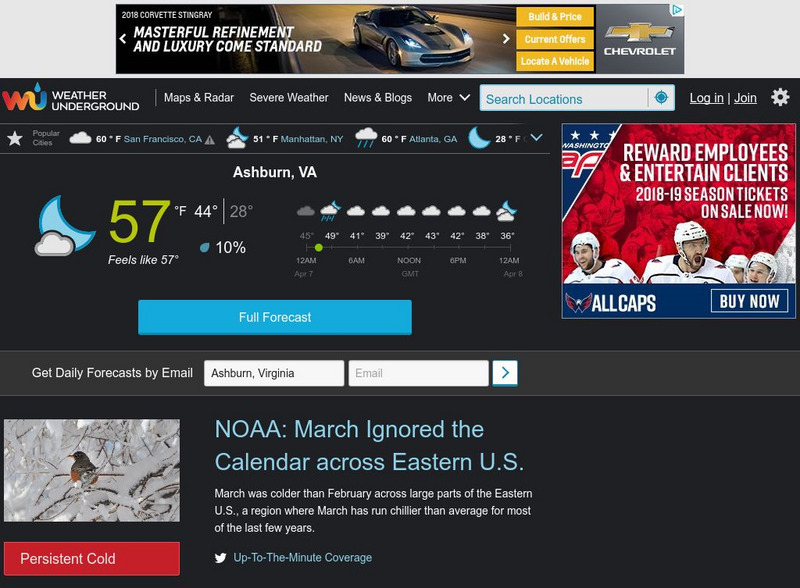
![Alberta Environment: Focus on the Ozone Layer [Pdf] Handout Alberta Environment: Focus on the Ozone Layer [Pdf] Handout](https://d15y2dacu3jp90.cloudfront.net/images/attachment_defaults/resource/large/FPO-knovation.png)


